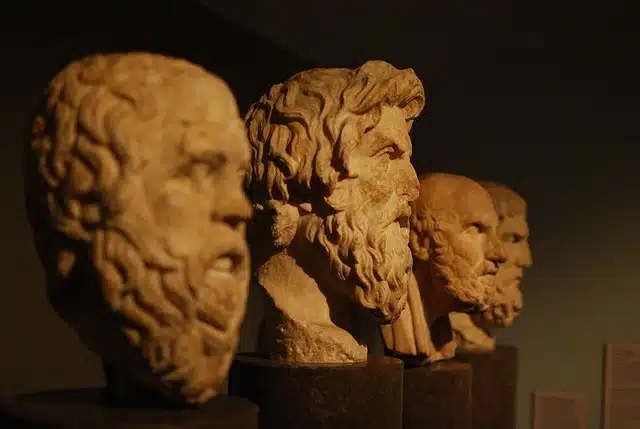
Many Greeks remained in history for their contributions to science and art.
From the Latin graecus , the word Greek refers to that which is natural, belonging to or relating to Greece , a nation in southeastern Europe. This country is bordered to the south and west by the Ionian Sea and the Mediterranean Sea, to the east by Turkey , and to the north by Albania and Macedonia .
The current Greek Prime Minister is Kyriakos Mitsotakis , proclaimed following the 2019 parliamentary elections. Mitsotakis leads the government of a democratic republic, which has a unicameral Legislative Branch (with 300 members) and a Judicial Branch represented by three superior courts.
The Greek surface is 132,562 km² and is home to some 11,244,000 inhabitants , spread across its continental territory and its 9,000 islands, islets and rocky outcrops.
Greek characters of historical relevance
In addition to all of the above, we cannot ignore the fact that world history is full of Greek characters who have had a notable influence on different scientific, cultural or social fields. Thus, we find, for example, that the history of philosophy would not be the same without the role played by figures of the stature of Aristotle or Plato .
In the same way, we should also highlight the role in literature of personalities such as Homer , who wrote two of the most important classic works in history ( The Odyssey and The Iliad ), and Sophocles , who became the reference within what tragedy is.
Science also has several Greeks as fundamental pillars. This would be the case of Pythagoras , who invented the multiplication table and the hypotenuse theorem, and of Archimedes , who established the value of pi, principles of geometry and also the law of the lever.
Other important Greeks in world history are the sculptor Phidias who left his mark on the Acropolis of Athens , Pericles who was a pioneer in the establishment of democracy, Hippocrates who is considered the father of medicine or the great emperor Alexander the Great .

There are Greek cities and towns that receive a large flow of tourists.
education
In Greece , education is compulsory for children between 6 and 15 years old.
Compulsory education is divided between Primary ( Dimotiko ) and Lower Secondary Education ( Gymnasio ).
Greek language
The Greek language , as it is known today, had its origins in ancient Greek. According to its historical evolution, a distinction can be made between ancient Greek , medieval Greek and modern Greek . Modern Greek is the official language of Greece and Cyprus .
Some fifteen million people around the world use Greek as their mother tongue. In addition to the two aforementioned countries, we also find minorities of speakers of that language in other corners of the planet's geography such as Italy , Albania , Canada , Chile , France , England or Germany .
To write in the Greek language, the Greek alphabet , developed in the 9th century BC , is used. based on the Phoenician alphabet . Today, the Greek letters are Alpha, Beta, Gamma, Delta, Epsilon, Dseta, Eta, Theta, Iota, Kappa, Lambda, My, Ny, Xi, Omicron, Pi, Ro, Sigma, Tau, Ipsilon, Fi, Ji, Psi and Omega . Other letters, however, have fallen into disuse.
